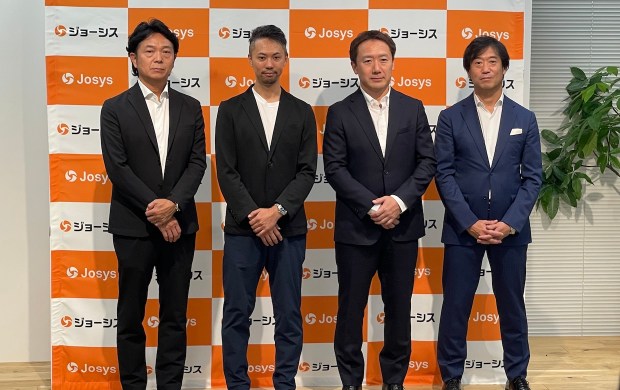 This guest post is authored by Mark Bivens. Mark is a Silicon Valley native and former entrepreneur, having started three companies before “turning to the dark side of VC.”
This guest post is authored by Mark Bivens. Mark is a Silicon Valley native and former entrepreneur, having started three companies before “turning to the dark side of VC.”
He is a venture capitalist that travels between Paris and Tokyo (aka the RudeVC). He is the Managing Partner of Shizen Capital (formerly known as Tachi.ai Ventures) in Japan. You can read more on his blog at http://rude.vc or follow him @markbivens. The Japanese translation of this article is available here.

Just prior to the summer we announced our new Sprout initiative at Shizen Capital.
Our hypothesis was that female venture capitalists were far too scarce in Japan, and not for lack of talent. We believe that diversity in venture capital teams is important for maximizing financial performance of a fund, as well as for identifying and supporting women and minority startup founders, who are also disadvantaged in venture ecosystems worldwide, and by extension funding innovative projects which merit backing yet fall off the conventional radars.
The diversity issue in our view is complex and systemic, and there is no single magic bullet of a solution to address it. However, as active investors in the market, we believe that we hold some accountability for the problem and hence have a role to play in solving it. Rather than discussing the topic ad infinitum in pursuit of the perfect solution, we chose to act.
Accordingly, we expect that the first incarnation of our Sprout initiative will be imperfect, but we are confident that we can improve and refine it along the way. We’re essentially applying The Lean Startup methodology toward addressing the complex problem of lack of diversity in venture capital. We’ve structured the Shizen Capital Sprout initiative as an apprenticeship program for emerging female VC fund managers.
Although only a few months in, we’ve already witnessed several market characteristics validating our initial hypothesis.

Image credit: Braid Technologies
For one, the volume of inbound applicants from truly impressive individuals debunks any myth of a scarcity of female VC talent in Japan. Our single blog post announcing the program — not even in Japanese for a role requiring native fluency — has appeared to tap an artery. As a small team, we regret that we could not hold extensive conversations with every candidate, but among the short list of those with whom we did, we found it difficult to narrow our selection to only one. For the others — and you know who you are — we are deeply grateful for the opportunity to have explored a collaboration with each of you. In our philosophy, there is a non-negligible chance that destiny will bring our professional paths together again in the future.
Another discovery during this preliminary phase: a tendency toward organizational hierarchy pervades the market. An elaborate degree of hierarchy is understandable in large and incumbent corporations. In venture however, our view is that excessive hierarchy serves as an impediment to investing in innovation. In other emerging venture ecosystems, we’ve witnessed how this can contribute to a dearth of early-stage capital, insufferably long due diligence cycles, and a proliferation of unwieldy investment syndicates that eschew stepping outside comfort zones. We respectfully encourage flatter fund organizations before this becomes a problem in Japan.
One final observation: several applicants approached us by leading with an apology that they lacked direct VC experience. This illustrates exactly the vicious cycle we are hoping to break ! The entire raison d’être of Sprout is to enable candidates with the right attitude and aptitude to become VC fund managers, regardless of their prior experience and career background.
As the inaugural Sprout participant, Mayumi has joined Shizen Capital as a full-time Investment Director on a track to become full GP. Mayumi impressed us with her global mindset as well as her long-term ambition to build a VC fund focused on the African market, in pursuit of financial return and social impact, a commendable aspiration which Shizen endeavours to support in the future.
We are thrilled to count Mayumi as our newest member of the Shizen Capital family! Please feel free to introduce yourselves when you see her out at events.

























































